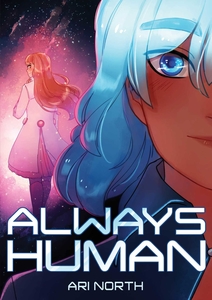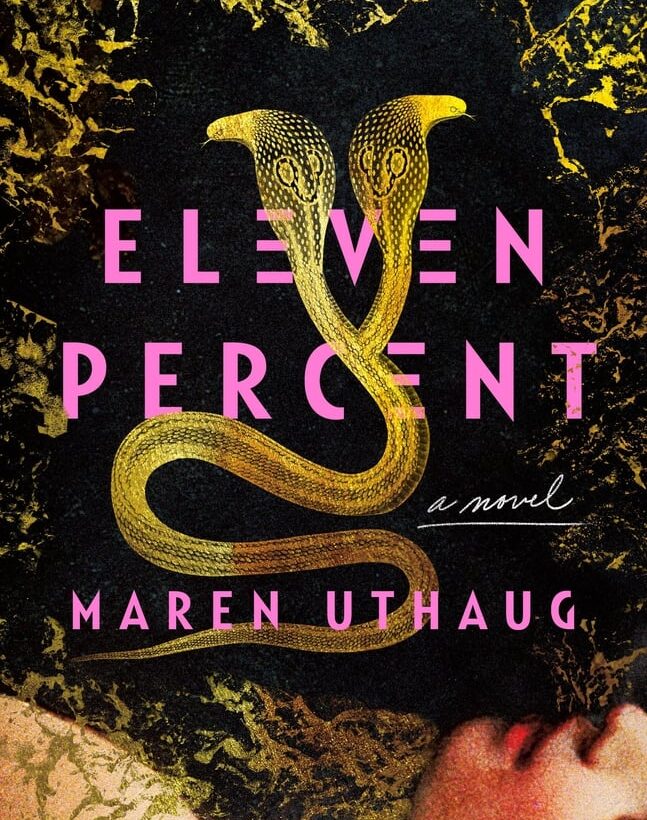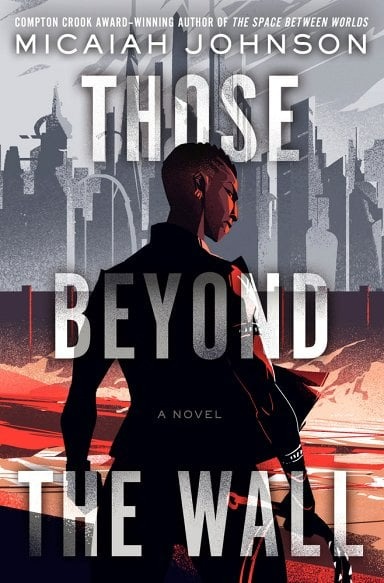If the universe proves itself to be utterly meaningless, what do you do next? For Vera, the narrator of Lucky Day by Chuck Tingle, the answer is: rot in your dead mother’s house for four years in a general nihilistic malaise until a government agent bursts through your door because he needs your help takingRead More
A Wild Dystopian Ride: Road to Ruin by Hana Lee
This is a post-apocalyptic ride of a novel with many a comparison to the Mad Max movies. Desert wastelands, thrilling motorcycle rides, and dinosaur-like creatures await in these pages! Jin-Lu, our main character, is a mage-bike courier, which means she has an aesthetically cool and extremely dangerous job taking messages and cargo across the wastelandsRead More
A Queernorm Sapphic Sci-Fi Graphic Novel: Always Human by Ari North Review
Always Human is a beautiful graphic novel by Ari North (she/her). Originally syndicated on Webtoon as a webcomic, it was later published in partnership with GLAAD. This novel is book one of a two-part series. Although it wasn’t my cup of tea, I encourage you to read it for yourself to see where you land. The novel opens inRead More
Be Gay Do Heists: Hammajang Luck by Makana Yamamoto Review
There are few things more satisfying than watching a plan unfold with no hiccups—or with a few hiccups that get resolved in the most epic of ways. Heist plots are perfect for creating that irresistible balance of intrigue, action, and suspense that makes me keep on turning the page. Hammajang Luck by Makana Yamamoto is aRead More
The Most Sapphic of Romance Novels: Cosmic Love at the Multiverse Hair Salon by Annie Mare Review
When Tressa Fay gets a text from a wrong number, it’s not long before they’re flirting. In fact, they decide to meet up that night. But when she arrives at the bar, Tressa Fay is disappointed to realize the cute engineer is not there, despite Meryl’s continual texts insisting she is. Soon, Tressa Fay learnsRead More
Faeries, Dragons, and Space Monsters, Oh My: Three Sapphic SFF Novellas
I first want to give a shout-out to the Asian Readathon, which Cindy Pham (@WithCindy on Youtube) hosts during May. While we’re near the end of the month, the associated Directory of Asian Books is an incredible resource year-round, and both it and this year’s challenge contain an LGBT category. With that in mind, I’veRead More
An Inverse Handmaid’s Tale: Eleven Percent by Maren Uthaug Review
Eleven Percent has been marketed as an “inverse Handmaid’s Tale”—a world where women are in control and only 11% of men remain (kept under lock and key for reproduction and such). But while that pitch might catch your attention, what Maren Uthaug actually delivers is a much more unsettling and layered exploration of power, gender,Read More
A Cyberpunk Heist: Hammajang Luck by Makana Yamamoto Review
I picked up Hammajang Luck by Makana Yamamoto during the Trans Rights Readathon, as the dramatic setup for this cyberpunk heist novel compelled me. It ended up being one of the most memorable stories I read for the event. Edie’s last heist ended with them being sold out by their childhood friend, Angel, and spending eight yearsRead More
Sci-Fi as Protest: Those Beyond the Wall by Micaiah Johnson
I don’t think I’ve ever been so pulled into a novel by the dedication, author’s note, and epigraph. (The epigraph to Part One is “i did not come to preach of peace / for that’s not the hunted’s duty.” -Danez Smith.) In the author’s note, Johnson explains the inspiration behind this book coming from her time participating in the 62-day sit in at Nashville’s Tennessee State Capitol. I found myself writing down multiple quotations, including…
A Triumph of Sapphic Sci-Fi Romance: No Shelter But The Stars by Virginia Black Review
My first love was science fiction. I was raised in a Star Trek family, my favorite video game is Mass Effect, and The Expanse is my favorite TV show. However, it’s taken me a while to combine my love of science fiction and my love of romance in the books that I read. I have recently rectified this with VirginiaRead More








